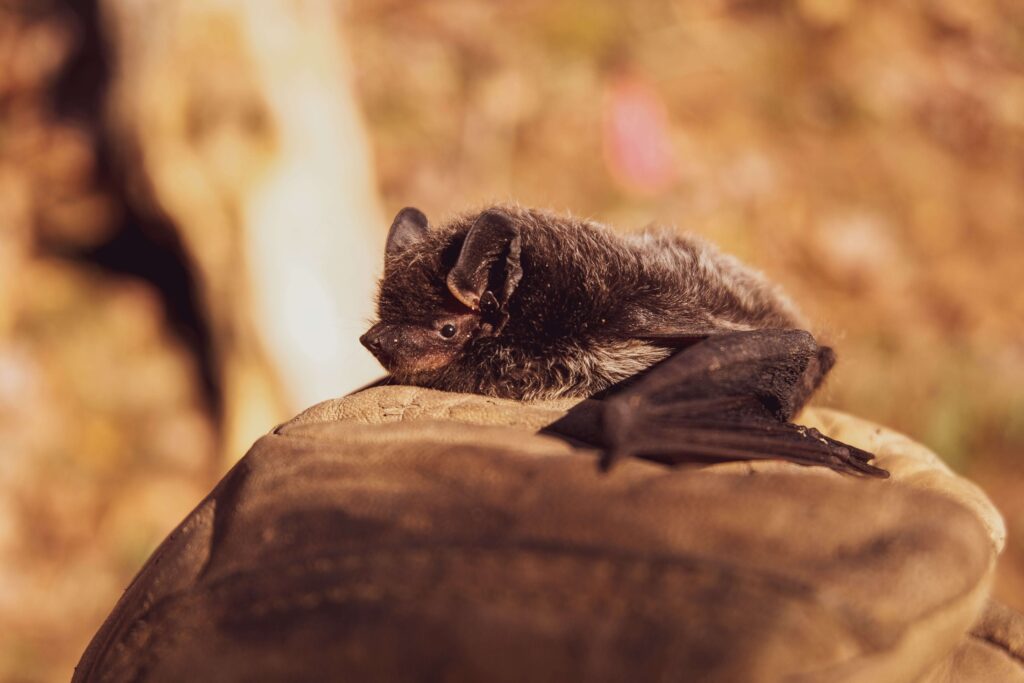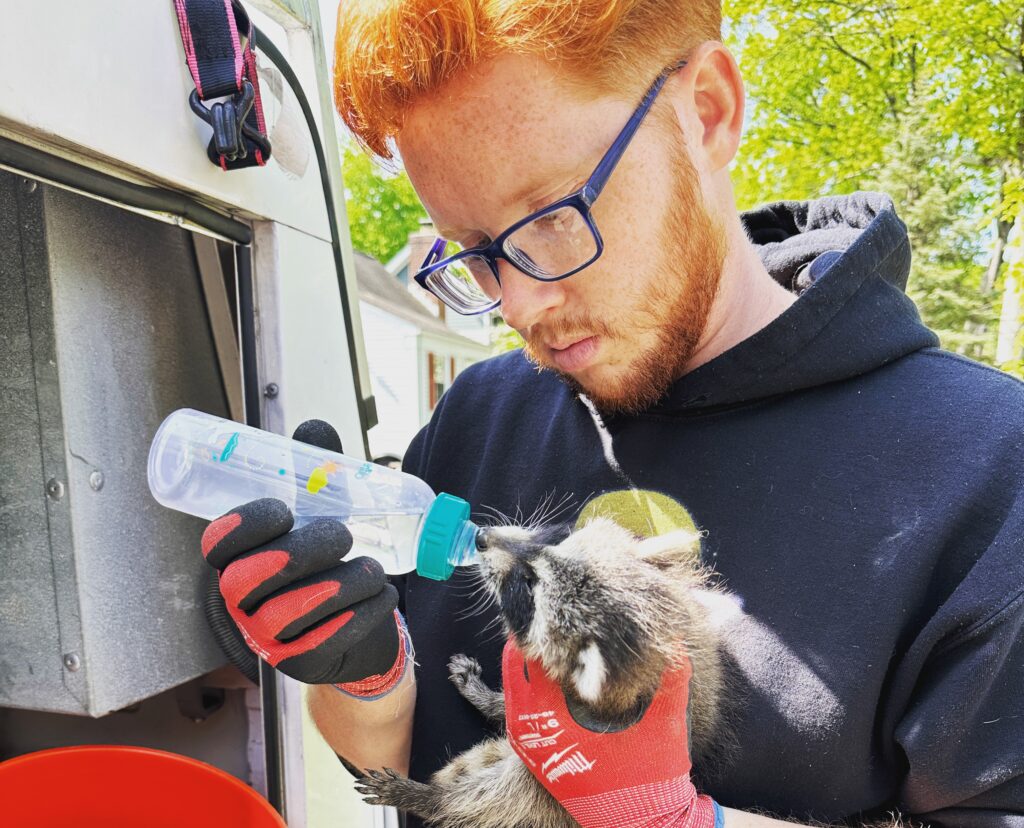In the serene landscapes of New Jersey, the beauty of nature coexists with the challenges of wildlife management. Among the many species that share this environment, bats play a vital role in maintaining ecological balance. However, when these nocturnal creatures find their way into our homes and businesses, the need for effective bat removal becomes crucial. This article delves into the intricacies of addressing this issue, focusing specifically on the unique challenges posed by bat infestations in the Garden State.
Bat removal in New Jersey is not merely a matter of pest control; it’s a delicate balance between safeguarding public health, preserving the environment, and respecting the intrinsic value of these creatures. As residents grapple with the presence of bats in their living spaces, understanding the nuances of bat removal becomes paramount. This comprehensive exploration will shed light on the signs of bat infestations, the risks associated with DIY solutions, and the importance of employing professional and humane bat control methods in the state. Join us on this journey to discover effective solutions for safe and ethical bat removal in the heart of New Jersey – where nature meets the suburbs, and conservation meets community welfare.
Key Takeaways
- Trusting professional services ensures effective and humane bat removal in New Jersey, safeguarding both residents and local bat populations.
- Adhering to legal regulations for bat removal in NJ avoids consequences and supports responsible wildlife management.
- DIY attempts may expose individuals to zoonotic diseases. Professional removal minimizes health risks associated with bat infestations.
- Employing humane methods in bat control not only resolves infestations but also upholds the ecological balance and conserves local biodiversity.
- Educating the public on bat conservation fosters responsible practices, minimizing the need for removal and promoting coexistence in New Jersey.
Understanding the Need for Bat Removal in New Jersey
Nestled within the scenic landscapes of New Jersey, the need for bat removal emerges as a distinctive challenge for residents. Understanding the complexities of this issue requires a grasp of the prevalent bat species in the region, their ecological significance, and the potential threats they pose when they infiltrate human habitats. Bat removal in New Jersey is not a mere cosmetic concern; it’s an essential aspect of maintaining a harmonious coexistence between wildlife and residents.
New Jersey is home to various bat species, each contributing uniquely to the local ecosystem. However, when these creatures venture into homes or businesses, their presence raises environmental and health concerns. Guano and urine stains, coupled with unusual sounds and behavior, often serve as telltale signs of bat infestations. As residents become attuned to these indicators, the realization of the need for prompt and effective bat removal in New Jersey becomes evident.
Beyond the inconvenience posed by their presence, bats can introduce health hazards and zoonotic diseases to the community. Recognizing the need for comprehensive solutions, both legal and ethical, highlights the importance of addressing bat removal in New Jersey with a balanced perspective. In the subsequent sections, we will explore the risks associated with DIY removal methods and delve into the benefits of professional services, emphasizing the significance of adopting humane techniques for bat exclusion in the Garden State.
Signs of Bat Infestation
Detecting the presence of bats within your New Jersey residence involves keen observation and an understanding of the subtle yet distinctive signs that indicate a potential infestation. Bats, while beneficial to the ecosystem, can become problematic when they infiltrate homes or commercial spaces. Recognizing these signs is crucial for initiating timely and effective bat removal in New Jersey.
One notable indicator of bat infestation is the presence of guano and urine stains. Bats often leave these markings near their roosting areas, and their distinct odor may also be noticeable. Additionally, as nocturnal creatures, bats emit high-pitched sounds that may be heard during the evening, particularly in areas where they congregate. These noises, while not always loud, can be a clear signal of their presence.
Furthermore, observing the exterior of your property may reveal entry points such as gaps or cracks in the structure. Bats can squeeze through remarkably small openings, making it essential to inspect the building for potential access points. As residents become attuned to these subtle signs, the need for professional bat removal in New Jersey becomes apparent, ensuring a swift and humane resolution to the infestation while preserving the well-being of both residents and the local bat population.
The Risks of DIY Bat Removal
Undertaking do-it-yourself (DIY) bat removal in New Jersey may seem like a cost-effective solution, but it comes with a myriad of risks and challenges. Residents attempting to address bat infestations without professional assistance may inadvertently expose themselves to a range of issues, highlighting the importance of seeking expert services for bat removal in NJ.
One prominent risk of DIY bat removal lies in the lack of specialized knowledge and training. Bats are protected species in many regions, including New Jersey, and mishandling their removal can result in legal consequences. Professionals are equipped with the understanding of local regulations, ensuring compliance and ethical treatment of bats during the removal process.
Moreover, DIY attempts often neglect the potential health hazards associated with bat infestations. Bats can carry zoonotic diseases, and improper handling may lead to the transmission of these illnesses to humans. Without the appropriate protective gear and expertise, individuals attempting DIY bat removal put their health at considerable risk.
In New Jersey, where various bat species inhabit diverse environments, the efficacy of DIY methods may be questionable. Professional bat removal services in NJ not only possess the knowledge to identify different bat species but also employ humane techniques for exclusion, ensuring the safety of both residents and the bats themselves. As we explore the risks associated with DIY bat removal, it becomes evident that entrusting this task to qualified professionals is crucial for a successful, legal, and humane resolution to bat infestations in the Garden State.
Effective Solutions for Bat Removal in New Jersey

Addressing bat infestations in New Jersey necessitates effective and humane solutions that prioritize the well-being of both residents and the local bat population. Recognizing the challenges posed by these nocturnal creatures, seeking professional bat removal services in NJ emerges as a reliable and comprehensive solution.
Professional bat removal in New Jersey offers a range of benefits, starting with the expertise that seasoned professionals bring to the table. Their knowledge of local regulations ensures compliance with legal requirements, avoiding potential pitfalls associated with DIY attempts. Moreover, professionals possess the skills to identify different bat species, tailoring removal strategies to specific infestations.
Humane techniques for bat exclusion represent a hallmark of professional services. Rather than resorting to harmful measures, experts employ methods that encourage bats to leave without causing harm. This approach aligns with ethical considerations and acknowledges the ecological significance of bats in New Jersey’s diverse ecosystems.
Locating reputable bat removal companies in NJ becomes a crucial step in this process. Online reviews, testimonials, and verifying credentials can guide residents in selecting a service provider with a proven track record. By entrusting bat removal to professionals, residents contribute to a safer and more sustainable resolution, fostering coexistence between humans and bats in the Garden State.
The Importance of Humane Bat Control
Recognizing the importance of humane bat control in New Jersey is paramount as residents navigate the challenges posed by bat infestations. Beyond the immediate need for removal, adopting ethical practices ensures the preservation of these ecologically valuable creatures while addressing concerns related to public health and safety.
The ethical considerations surrounding bat removal in New Jersey extend to the acknowledgment of bats’ integral role in local ecosystems. Rather than resorting to harmful measures that may impact their well-being, adopting humane techniques becomes imperative. Professionals specializing in bat removal in NJ understand the significance of these creatures and employ methods that prioritize their welfare.
Furthermore, humane bat control aligns with the broader concept of responsible wildlife management. Bats, as protected species in many regions, including New Jersey, require careful handling and consideration. By opting for humane approaches, residents contribute to the conservation of biodiversity while addressing the immediate issue of infestation.
As communities strive for a balanced coexistence between humans and wildlife in New Jersey, emphasizing the importance of humane bat control emerges as a key component. This approach not only ensures the safety and well-being of both residents and bats but also promotes sustainable practices that harmonize with the natural environment of the Garden State.
Case Studies: Successful Bat Removal in NJ
Examining case studies of successful bat removal in New Jersey sheds light on the efficacy of professional interventions and the positive outcomes achieved in diverse scenarios. These real-world examples underscore the importance of enlisting specialized services to address bat infestations, showcasing the impact of strategic and humane approaches.
In one instance, a residential community in New Jersey faced a persistent bat presence, causing concern among residents. Professional bat removal services were employed to conduct a thorough assessment, identifying entry points and devising a tailored exclusion plan. Through the implementation of humane techniques, the bat colony was safely relocated, alleviating the immediate issue while preserving the ecological balance.
Another case involved a historic building in NJ grappling with a long-term bat infestation. Recognizing the significance of preserving the structure and its inhabitants, professionals employed innovative exclusion methods that successfully encouraged the bats to relocate without causing harm. This approach not only resolved the infestation but also contributed to the conservation of the historic site.
These case studies highlight the diverse challenges presented by bat infestations in New Jersey and underscore the efficacy of professional bat removal services in achieving successful, sustainable, and humane outcomes for both residents and the local bat population.
Educating the Public on Bat Conservation
Educating the public on bat conservation in the context of bat removal in New Jersey plays a pivotal role in fostering a community-wide understanding of the importance of coexisting with these nocturnal creatures. It goes beyond addressing immediate infestations to promote long-term harmony between residents and the local bat population.
Dispelling myths and misconceptions surrounding bats is a crucial aspect of public education. Understanding the ecological significance of bats in New Jersey, such as their role in insect control and pollination, encourages a more positive perception. By debunking common fears and misconceptions, residents become more receptive to the idea of conservation rather than immediate removal.
Furthermore, promoting responsible behavior to prevent bat infestations involves simple yet effective measures. Educating the public on sealing potential entry points and maintaining a bat-friendly environment helps minimize the need for removal while ensuring the safety and well-being of both residents and bats.
In New Jersey, where diverse bat species contribute to the local ecosystem, public education becomes a proactive step towards sustainable bat conservation. By fostering awareness and understanding, communities can actively participate in preserving the delicate balance between human habitats and the natural habitats of bats.
FAQs
Are bats protected in New Jersey?
Yes, bats are protected species in many regions, including New Jersey. It is essential to adhere to legal regulations when considering bat removal to avoid legal consequences.
How can I identify a bat infestation in my home?
Signs of a bat infestation include guano and urine stains, unusual sounds during the evening, and the presence of bats or entry points on the exterior of your property.
Can I relocate bats on my own?
No, relocating bats without professional guidance is not recommended. It is illegal in some areas, and improper relocation can harm the bats or lead to their return.
What role do bats play in the ecosystem?
Bats play a crucial role in controlling insect populations and pollinating plants. Their conservation is important for maintaining a balanced and healthy ecosystem.
How can I bat-proof my home to prevent infestations?
Seal potential entry points, such as gaps and cracks in walls, roofs, and vents. Additionally, consider installing bat-friendly deterrents to discourage roosting.
Conclusion
In conclusion, the challenges presented by bat infestations in New Jersey necessitate a comprehensive and thoughtful approach that prioritizes both human safety and the conservation of these ecologically vital creatures. Recognizing the need for bat removal in New Jersey, it becomes evident that relying on professional services is not just a practical choice but a responsible one.
Throughout this exploration, we’ve delved into the signs of bat infestation, the risks associated with DIY removal, and the effectiveness of professional and humane bat control methods. By understanding the nuances of bat removal in NJ, residents can make informed decisions that contribute to the well-being of their communities and the preservation of local ecosystems.
As we seek coexistence with bats in the Garden State, the importance of ethical and humane bat control cannot be overstated. Public awareness and responsible practices play a crucial role in minimizing the need for removal and fostering a harmonious relationship between humans and bats.
For swift and effective solutions to bat removal in New Jersey, consider reaching out to Kritter Catchers. Our team of experts is dedicated to ensuring a safe and humane resolution to bat infestations. Call us now at (973) 747-5455 to take the first step towards a bat-friendly and pest-free environment.

